On 23 June, Amnesty International Nepal (AI Nepal) and Community Self-Reliance Centre (CSRC) jointly organized a programme to locally share and disseminate the findings and recommendations of the report entitled Violations in the Name of Conservation in Gulariya, Bardiya.
The interaction event was chaired by AI Nepal Chair Bipin Budhathoki, and the Chief District Officer Bandhu Prasad Bastola graced the event as the Chief guest. Also present in the event, among others, were the Chief Warden of Bardiya National Park Bishnu Shrestha, the Chief Warden of Banke National Park Shyam Kumar Sah, the Chief of National Nature Conservation Trust, Bardiya Rabin Kadariya, the forest officers of Bardiya and Banke Mr Praveen Bidari and Ajeet Kumar Karna respectively. The programme was also participated by journalists, civil society representatives, and the community people living around Bardiya National Park.
Dr Jagat Basnet, founder member of CSRC, presented the background and methodologies of the study while AI Nepal Director Nirajan Thapaliya shared the findings and recommendations of the report.
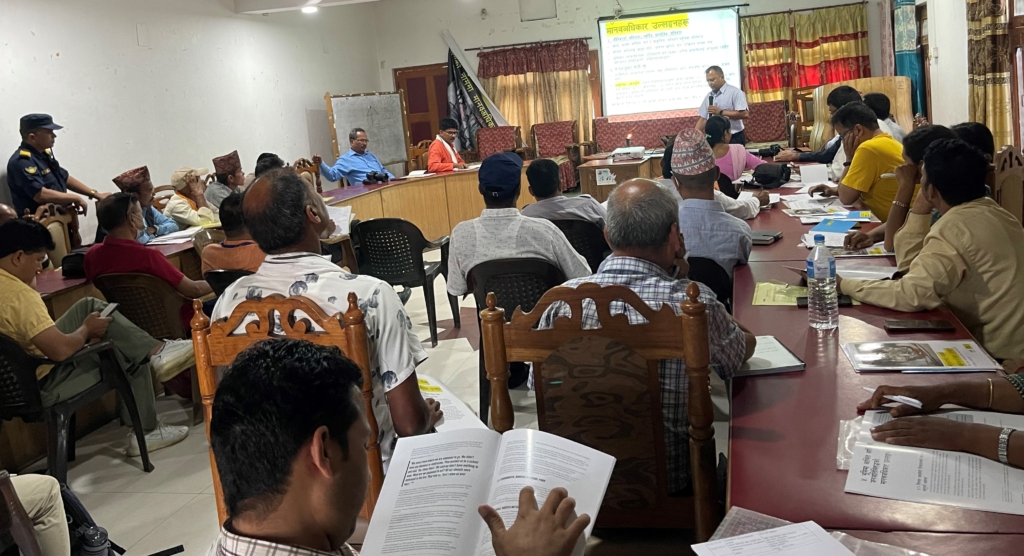
The report, which is based on evidence gathered from two national parks – Chitwan National Park and Bardiya National Park – documents incidents of human rights violations faced by indigenous people who reside in the vicinity of Nepal’s protected areas, including arbitrary arrests, illegal detention, torture, unlawful killing and forced evictions. The study also records how the establishment of the national parks, and other “protected areas” has resulted in tens of thousands of indigenous people being forcibly evicted from their ancestral lands and denied access to areas they depend on for subsistence.
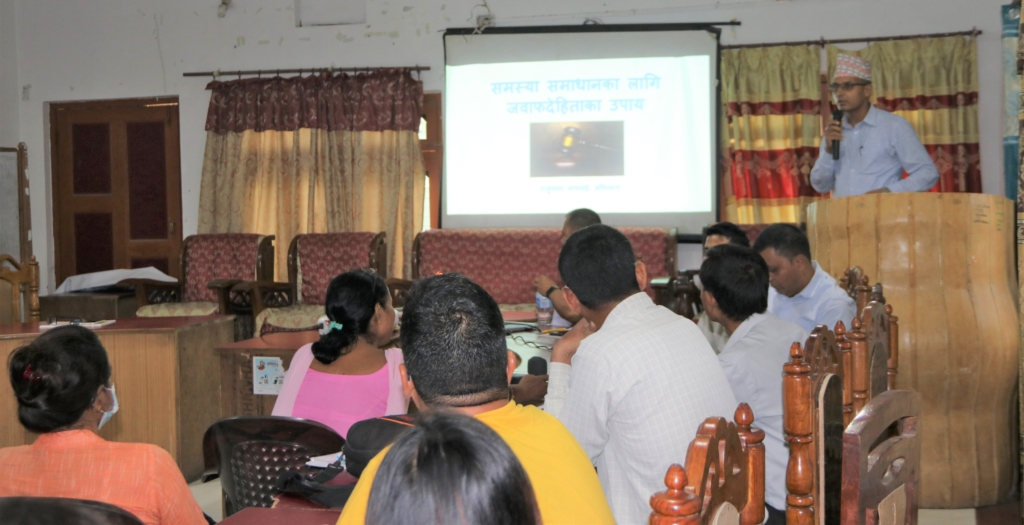
Similarly, advocate Raju Prasad Chapagai, who was also part of the study, shared the constitutional and legal obligations of the state with regard to the accountability measures in relation to providing justice and reparations to those who have suffered from human rights violations and abuses in the hands of the national park authorities.
Meanwhile, the Chief District Officer of Bardiya Bandhu Prasad Bastola thanked Amnesty International and CSRC in bringing the issues to light and urged the organizations to take the recommendation to the policy level debate and dialogue at the federal level while affirming that he would do his best to pay attention to the issues highlighted in the report.
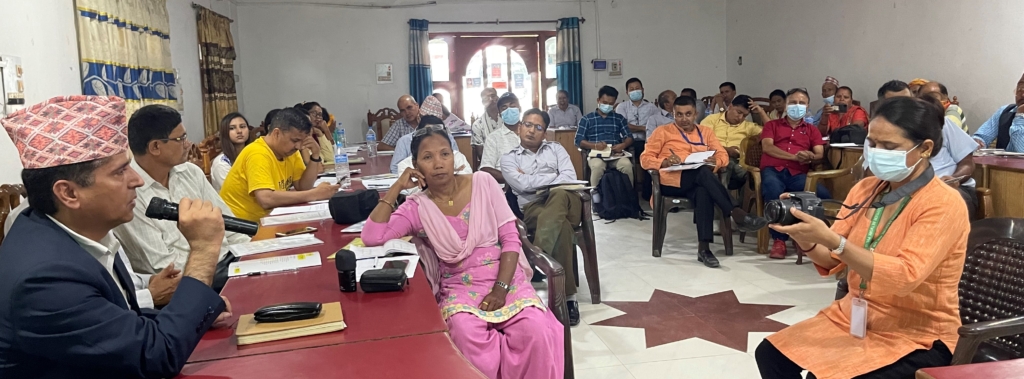
“The state has a range of duties including nature conservation, protection of the rights of the peoples, generating and channelling resources to allay the popular concerns address problems faced by people including the indigenous communities and those living in the vicinity of the national parks,” he said. “The recommendations related to change in the existing law related to the national parks are important which need to be shared with the Ministry of Forest and Environment and the parliamentarians at the federal level so that they could act on it.”
During the programme, community people shared their stories of how they became landless after they lost their lands to the national park following the change of the course by the Karnali river, the western ridge of which is supposed to be the boundary of the Bardiya National Park.
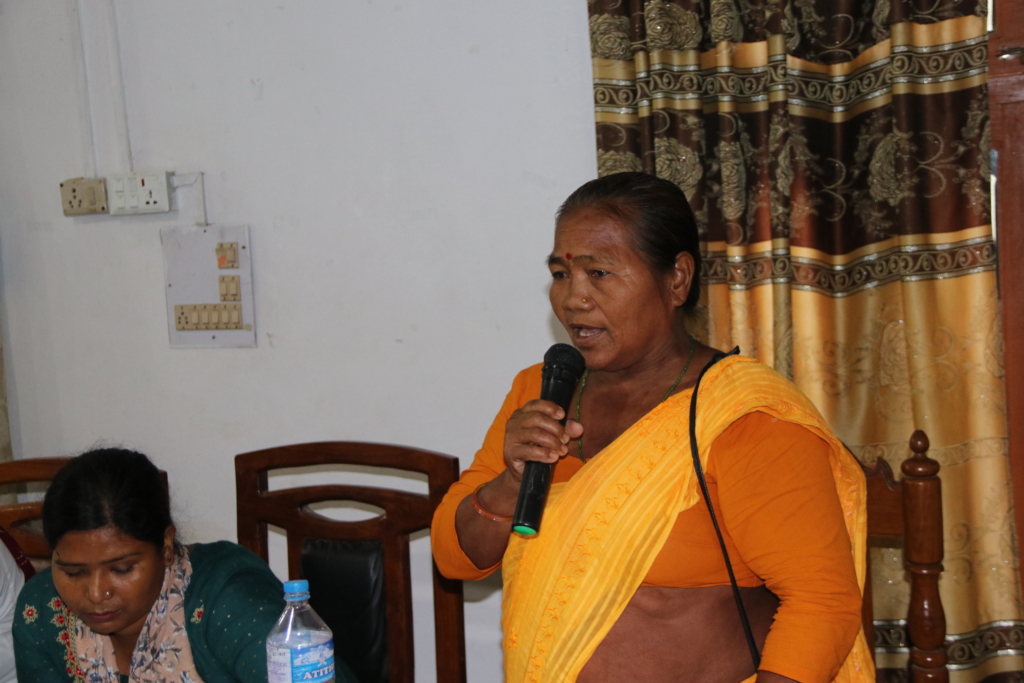
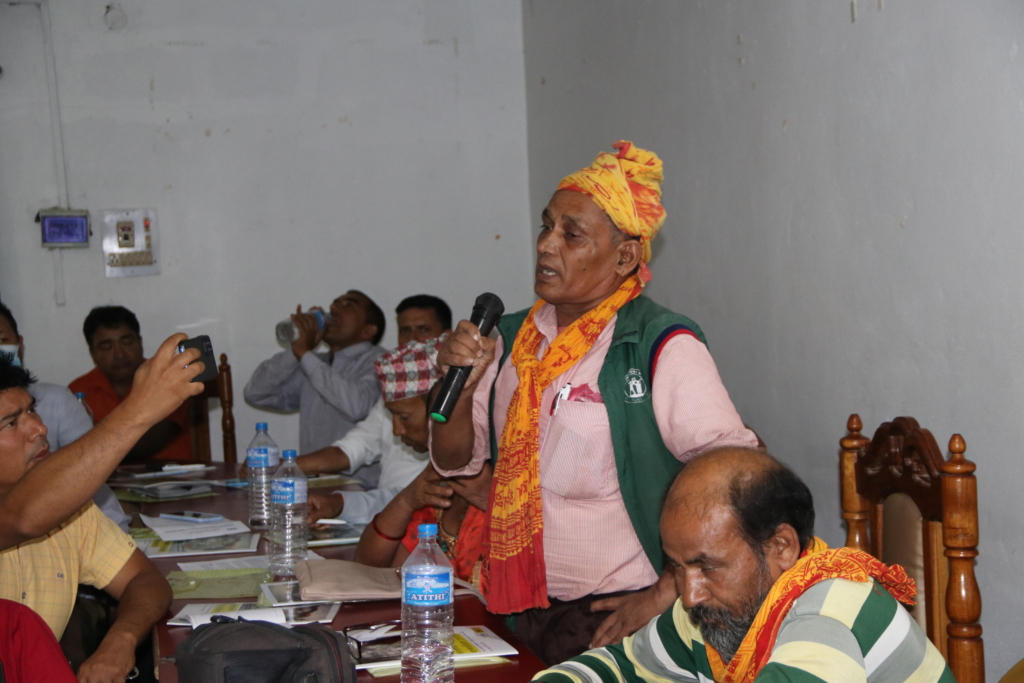
Bishnu Shrestha, Chief Warden of Bardiya National Park, said that many efforts are already put in place in addressing the issues highlighted in the report.
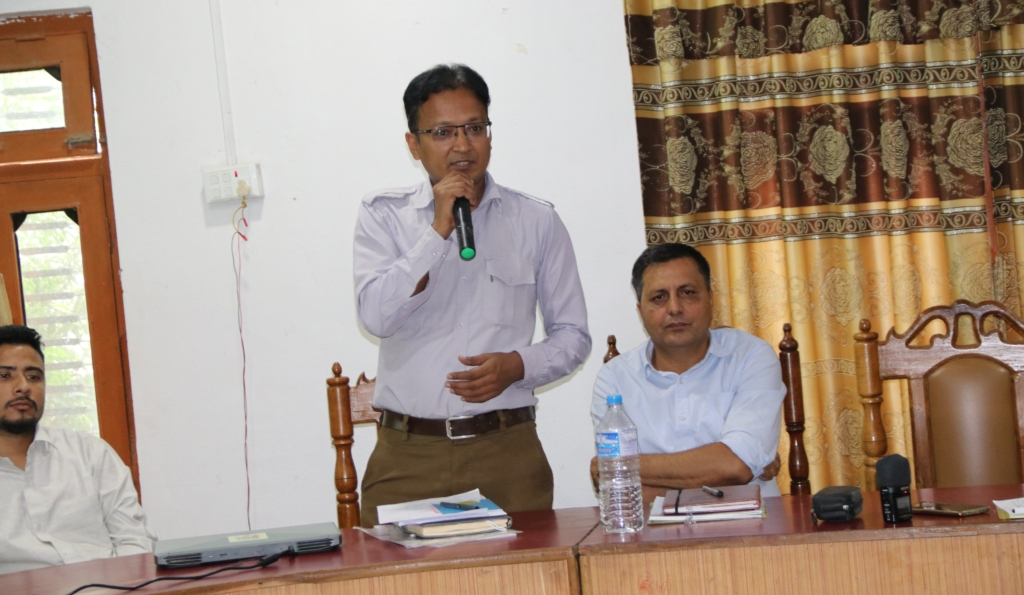
“The success of our conservation is recognized globally, and it is our duty to protect animals to maintain ecological balance. While doing so, we are aware of protecting human lives as well,” he added.
Amnesty Nepal Chairperson Bipin Budhathoki concluded the programme reiterating the significance of the findings and recommendations of the report which was undertaken on a very intense and grounded methodology. “The issues raised in the report are of grave concern from human rights perspective, and the authorities must listen and act accordingly towards addressing them,” he said in his concluding remarks.

The issues raised in the report are of grave concern from human rights perspective, and the authorities must listen and act accordingly towards addressing them.
Bipin Budhathoki, Chairperson
Amnesty International Nepal

